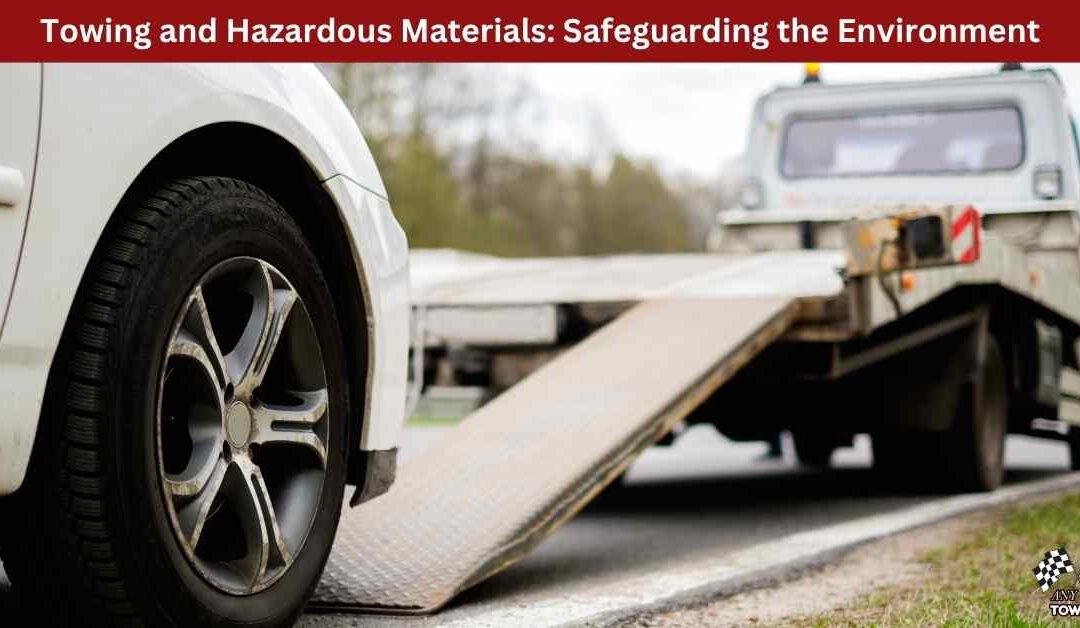When most people think about towing, they imagine moving broken-down cars, accident recoveries, or roadside assistance. But there’s another, less obvious part of the job that requires extra care: dealing with hazardous materials. Vehicles often carry substances like fuel, oil, battery acid, or other chemicals that can harm the environment if not handled properly. Tow truck operators play a crucial role in ensuring these materials are managed safely during transport.
Why Hazardous Materials Matter
Hazardous materials can cause significant environmental damage if spilled. Fuel leaks, for example, can contaminate soil and waterways, while battery acid and other chemicals can be toxic to wildlife. Mishandling these substances doesn’t just impact the environment—it can also create serious legal and safety issues. For towing companies, careful handling isn’t optional; it’s part of the job.
Key Safety Practices for Operators
1. Proper Containment
Before moving a vehicle, operators check for leaks and secure any loose fluids. Spill kits and absorbent materials are used to contain and clean up minor leaks on the spot.
2. Specialized Equipment
Flatbed trucks, enclosed carriers, and other equipment designed to safely transport vehicles prevent hazardous substances from spilling or escaping during transit.
3. Personal Protective Gear
Gloves, eye protection, and sometimes even respirators are standard for handling vehicles that may have hazardous materials on board. Safety for the operator is just as important as environmental safety.
4. Training and Compliance
Professional tow operators undergo training on handling hazardous materials and are familiar with local regulations. This ensures that they not only protect the environment but also avoid legal complications.
Real-World Example
Recently, a vehicle involved in a minor accident had a leaking battery and spilled fuel on a roadside. Our team arrived with protective gear and a spill kit, carefully securing the battery and absorbing the fuel before loading the car onto the flatbed. The spill was contained quickly, and the vehicle was transported without any environmental harm. Incidents like these show why proper handling is essential, even for small leaks.
Tips for Drivers
While tow operators are trained to handle hazardous materials, drivers can also help prevent accidents:
- Check for leaks or damage before towing.
- Avoid DIY towing if hazardous fluids are involved.
- Inform the towing company about any vehicle hazards in advance.
The Bigger Picture
Towing and hazardous materials management is about more than just moving cars—it’s about protecting communities, wildlife, and the environment. Professional operators combine technical skill with environmental responsibility, ensuring that even in accidents or breakdowns, the impact on nature is minimized.
A Thought to Consider
Every tow is an opportunity to act responsibly. By following proper protocols and using the right equipment, tow operators don’t just move vehicles—they safeguard the environment, protect drivers, and keep our roads and communities safer for everyone.
Now Any Car Towing is available in Keysborough Victoria 3173.
Contact Us
Any Car Towing
10 Silvergum Pl, Cranbourne VIC 3977
0413 176 223


Recent Comments